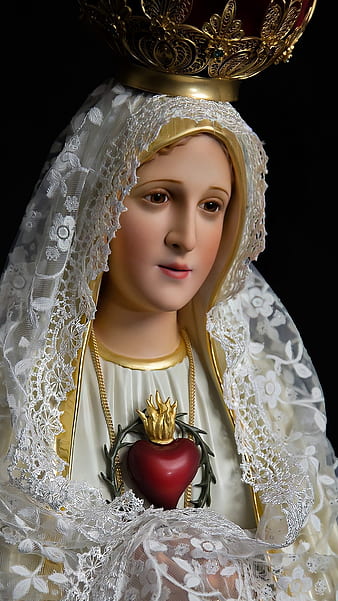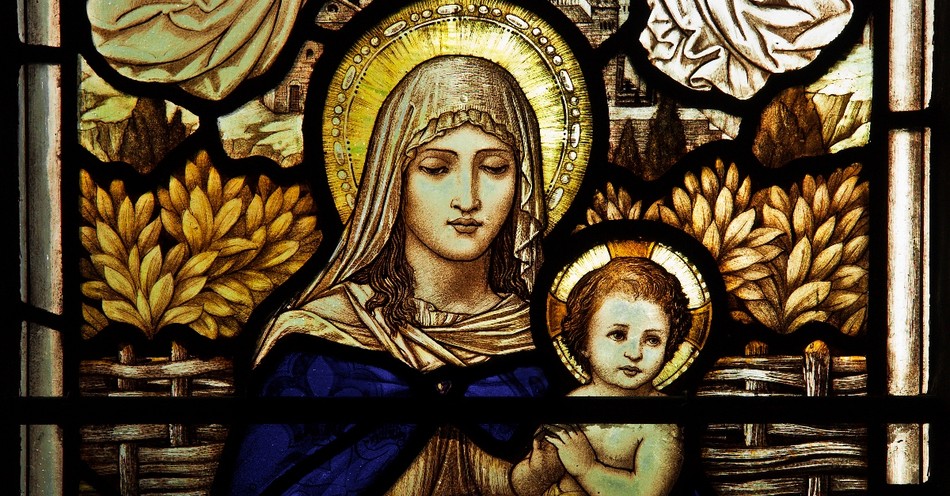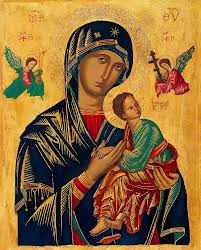The Efficacy of Marian Intercession in Catholic Theology and Practice
This article explores the theological underpinnings and practical applications of Marian intercession within the Catholic faith. Key concepts, such as intercession, maternal piety, and sacramental theology, will be defined and examined within the context of Catholic doctrine and lived experience. Intercession, in this context, refers to the act of one person praying on behalf of another, invoking divine grace. Maternal piety signifies the devotional relationship between the faithful and Mary, seen as a loving mother figure. Sacramental theology explores the efficacy of divinely instituted means of grace, including prayer and the sacraments.
Theological Foundation of Marian Intercession: The Catholic Church affirms Mary's unique role in salvation history. Her fiat at the Annunciation (Luke 1:38), signifying her complete surrender to God's will, is a foundational element of this understanding. This event, within the framework of divine economy, establishes Mary's pivotal role in the Incarnation and Redemption. Her perpetual virginity and her presence at the foot of the cross (John 19:26-27) further emphasize her unwavering faith and compassion. These biblical narratives support the theological understanding of her ongoing intercession for humanity.
Mary's Intercession as a Manifestation of Divine Mercy: The concept of Mary's intercession is deeply rooted in the understanding of God's mercy. Through her prayers, God's grace is mediated, demonstrating His compassion and accessibility. The wedding at Cana (John 2:1-11), where Mary's intercession leads to Jesus's first miracle, exemplifies this mediation. This event can be interpreted through the lens of the "communicatio idiomatum," a theological concept highlighting the interconnectedness of the divine and human natures of Christ, suggesting that Mary's influence is an expression of Christ's own mercy.
Ecclesiological Implications: The Catechism of the Catholic Church explicitly addresses Mary's role as intercessor, highlighting her status as a member of the Church and a model for believers. Her intercession is not a replacement for personal prayer but rather an augmentation of it. This understanding is consistent with the ecclesiological principle of the communion of saints, where the faithful on earth, in purgatory, and in heaven are united in prayer and mutual support.
Historical and Contemporary Evidence: The veneration of Mary and the practice of seeking her intercession have a rich history, as evidenced by the writings of saints and theologians throughout the centuries. The devotion of the Rosary, a form of Marian prayer, demonstrates the enduring significance of her intercession within Catholic piety. Contemporary anecdotal accounts and personal testimonies also attest to the perceived efficacy of this form of prayer. While empirical validation is not possible, these accounts contribute to the lived experience and understanding of Marian intercession within Catholic communities.
Marian Intercession and Personal Spiritual Growth: Embracing Mary's intercession involves a deeper understanding of the complexities of grace and human agency. It encourages a spirit of humility and reliance on God's grace, fostering spiritual growth through a strengthened relationship with Christ. This process aligns with various models of spiritual development, emphasizing the importance of prayer, mentorship, and imitation of virtuous examples.
The Role of Mary in Salvation: Mary's role is not limited to personal blessings but extends to the salvation of souls. Her intercession is viewed as an aid to conversion and growth in faith, drawing individuals closer to Christ. The concept of co-redemption, though debated theologically, underscores Mary's participation in the redemptive work of Christ, offering a compelling context for understanding her supportive role in the salvation of humanity.
Conclusion and Recommendations: The practice of Marian intercession, firmly rooted in Catholic theology and tradition, offers a path to experiencing God's mercy and grace. It fosters a deeper relationship with Christ and encourages spiritual growth. Future research could explore the psychological and sociological aspects of Marian devotion, investigating its impact on the well-being of believers and the dynamics of faith communities. Further investigation into the intersection of Marian piety and contemporary challenges facing the Church is also warranted. The study of historical accounts of Marian apparitions and their impact on individual lives and communities might provide additional insight into the nature of Marian intercession. The efficacy of Marian intercession remains a matter of faith, yet its role in fostering spiritual growth and deepening the connection with God is significant. The continued study of this devotion is important for a comprehensive understanding of Catholic spirituality.
Reader Pool: Considering the theological arguments presented, how might the concept of Marian intercession be further articulated to resonate with contemporary audiences while upholding its traditional significance within the Catholic faith?








No comments yet. Be the first to share your thoughts!